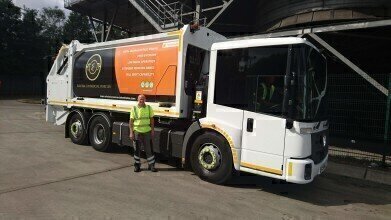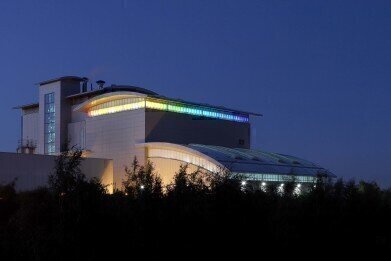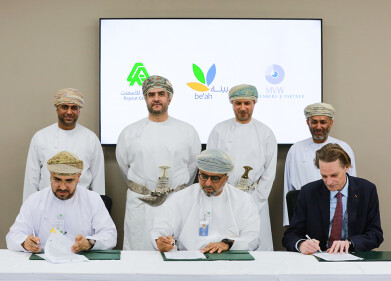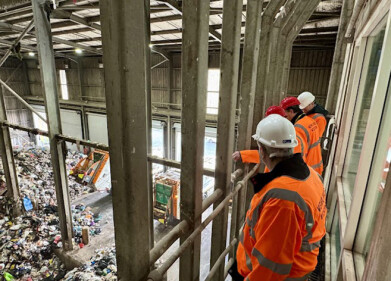Waste management
Veolia to trial electric refuse collection vehicles
Sep 11 2018
Closing the loop - World first project will recharge vehicles using green energy derived from waste they collect
Global resource management company, Veolia, is to trial innovative electric Refuse Collection Vehicles (RCV) charged by power derived from the waste they have collected. The project in Sheffield will see two 26 tonne RCV converted from diesel to electric power in a scheme to accelerate the transition to zero emission heavy goods vehicles. In the future these vehicles are set tobe charged using the electricity generated from the non-recyclable household waste that fuels the city’s Energy Recovery Facility, a world first.
Converting the RCV, which need replacing, is an effective way of extending the life of an existing vehicle by changing the diesel engine for electric power. The project is backed by a grant from the Innovation Funding Service (Innovate UK) which will enable two repowered RCV to be trialed over the next two years. The lorries will be powerful enough to negotiate 25 percent gradients on hills even when fully loaded, and are expected to be converted and operational by the end of the year. The project will also convert an additional two RCV that will be used in trials in London.
Demonstrating Veolia’s commitment to reduce emissions this latest move to decarbonise vehicles follows the recent introduction of zero emission electric street sweeping vehicles, another first for the UK. The five new electric sweepers will save 78 tonnes of carbon dioxide from entering the environment each year which is the equivalent to removing 33 passenger cars from the road.
The company has also introduced electric powered eco-vans to hospital contracts in Liverpool and Southport to make hospital day-to-day work more environmentally friendly. These are recharged using the low carbon electricity generated by the hospital combined heat and power (CHP) plants managed by Veolia. Other low emission compressed natural gas (CNG) vehicles operate in Camden, where they carry out graffiti removal, and these vehicles refuel from Veolia’s brand new compressed natural gas (CNG) refuelling station.
Commenting on this latest innovation Gary Clark, Veolia’s UK Fleet Director, said, “This project highlights Veolia’s strong commitment to clean air initiatives as we look to improve the environment in our cities. By working closely with our customers to deliver fleet solutions that lower emissions we help them ensure they deliver real value for money, and limit costs for local tax payers. By recharging the vehicles from the Energy Recovery Facility this approach also show how local authorities and the public sector can drive sustainability and use green energy to address their environmental challenges.”
With a focus on supplying green energy the Energy Recovery Facility (ERF) in Sheffield, generates electricity for the National Grid and heat for the city's award winning district heating network. Configured as a combined heat and power plant it also supplies heat and hot water to over 150 buildings including the Town Hall, Crucible Theatre and Weston Park Museum. Sheffield’s approach means that it sends less than 1% of its household waste to landfill, one of the lowest figures in the UK.
Veolia collects Sheffield’s non-recyclable household waste (black bin waste) and sends this to the Energy Recovery Facility, where it’s burnt to produce enough electricity for over 22,600 homes.
Events
Apr 21 2025 Shanghai, China
May 11 2025 Vienna, Austria
May 18 2025 Algiers, Algeria
23rd International Water Management Exhibition
May 20 2025 Prague, Czech Republic
Singapore International Water Week Spotlight 2025
Jun 23 2025 Singapore















